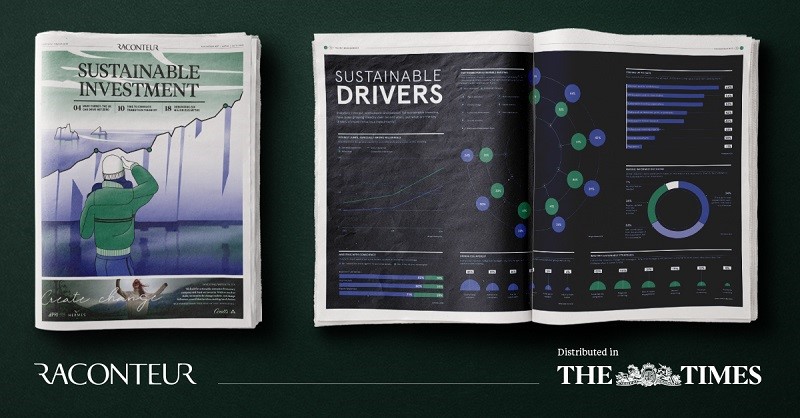
Renewable energy auction secures enough power for 11m UK homes


Voters want climate action but don’t trust politicians to do it. Could projects like a Whitehaven windfarm be the answer?
The seaside town of Whitehaven, in the north-west of England, found itself at the centre of a political storm in May, when the levelling up, housing and communities secretary, Michael Gove, gave his approval for the UK’s first new deep coal mine in more than 40 years just outside the town.
But Whitehaven may soon be known for more than climate-wrecking coal. That is the ambition of Project Collette, a £3bn proposal for a windfarm off the Cumbrian coast to be part-owned by the local community – instigated by the Green Finance Community Hub in collaboration with the engineering firm Arup and community energy specialists Energy4All – and with the potential to power nearby industry.
If Cumbrians could stand on the sandstone cliffs and look out at wind turbines they owned, and that had provided jobs for local people, that might just build the political support and engagement that is so vital to reaching our climate targets?
READ
A biotech firm is trialling the removal of PFAS “forever chemicals” from soil at a test site in Wisconsin by injecting chemical-eating bacteria and electrocuting the ground.
Perfluoroalkyl and polyfluoroalkyl substances, or PFAS, are a class of thousands of different synthetic chemicals that contain carbon and fluorine atoms linked by strong bonds. The chemicals – which repel grease and water – have been in widespread use since the 1940s in everything from firefighting foam at airports to dental floss.
But the same qualities that make PFAS useful stop the chemicals from degrading, so many of them are persistent environmental contaminants. They are often called forever chemicals, and have been found in drinking water and in people’s blood all over the world.
Great Britain’s windfarms set a new clean energy record on Monday after the blowy bank holiday weather helped onshore and offshore wind turbines make up almost half of the electricity system.

Despite the pandemic, almost two thirds of people around the world now view climate change as a global emergency.
That’s the key finding from the largest opinion poll yet conducted on tackling global warming.
More than a million people in 50 countries took part in the survey, with almost half the participants aged between 14 and 18.
Conserving forests and land emerged as the most popular solution for tackling the issue.
UK local authorities have pledged to work towards cleaner air and greener energy, but with limited government investment, they are having to resort to other funding sources
This week The Times published this article in association with UKSIF & Raconteur. For clients & friends interested in getting a copy of this simply use the form below and I will eMail one to you.

Former governor of the Bank of England Mark Carney believes the UK is uniquely positioned to transform pensions and work towards a net zero
future
With a lack of standardisation around criteria and a passive approach to screening, sustainable investing is yet to reach its potential. A change of mindset is needed.
A new type of green finance has emerged and, rather than simply blacklisting “bad” companies, it is offering even the heaviest polluters a pathway to a greener future.
Investors’ interest, enthusiasm and passion for sustainable investing have been growing steadily over recent years, but what are the key drivers of more conscious investments?
As Brexit threatens the UK’s pre-eminence as a financial hub, spearheading sustainable finance offers a welcome lifeline
There is compelling evidence that environmental, social and governance funds
can outperform their less sustainable counterparts, but what’s driving superior returns
From low returns to a lack of interest among the elderly, there are many misconceptions around environmental, social and governance investing. Here are our top six myths
[formidable id=4]
|
| Sustainable funds outperform market
This Good Money Week, the latest Good Investment Review reveals that sustainable funds have outperformed the sector average over the last FIVE years – and in particular throughout the coronavirus crisis. Since 2015, the ethical UK equity funds monitored have brought average returns of 25.76 per cent compared with 16.52 per cent for the sector. Meanwhile, the ethical global equity funds studied returned an average of 85.23 per cent compared with 76.12 per cent for the sector. In the eight months to October 2020, 12 of the 15 ethical UK equity funds studied performed better than the market average (80 per cent), as did 41 out of the 56 global ethical funds (73 per cent). The October 2020 review from Good With Money reveals that despite the financial turmoil of the global pandemic, assets held in funds with an ethical or sustainable label in the UK have continued to rise, reaching a whopping £158 billion. This is up 14 per cent from the previous six months. John Fleetwood, Director of Responsible and Sustainable Investing at Square Mile, says: “positive impact need not come at the expense of financial returns, and if anything, investing for positive impact can improve returns.” |
Since 2015, the ethical UK equity funds monitored in the review have brought average returns of 25.76 per cent compared with 16.52 per cent for all funds in the sector. Meanwhile, the ethical global equity funds monitored have returned an average of 85.23 per cent compared with 76.12 per cent for the sector.
In the eight months to October 2020, 12 of the 15 ethical UK equity funds studied performed better than the market average (80 per cent), as did 41 out of the 56 global ethical funds (73 per cent).
The October 2020 review reveals that despite the financial turmoil of the global pandemic, ‘assets under management’ held within funds with an ethical or sustainable label in the UK have continued to rise, reaching a whopping £158 billion – up 14 per cent from the previous six months.
The rise represents further evidence of the surge in interest in investing for positive impact or with environmental, social and governance (ESG) factors in mind.
John Fleetwood, founder of 3D Investing (now part of Square Mile Consulting and Research), said: “The evidence shows that positive impact need not come at the expense of financial returns, and if anything, investing for positive impact can improve returns.”
The latest review covers developments in methodology for measuring ethical and sustainable funds, and attempts to clear up some of the confusion over the different terminology used to describe them.
There is must-read commentary from some of the UK’s top ethical and sustainable fund managers.
The Review rates funds that have an ethical or sustainable approach according to how well they do what they say on the tin.